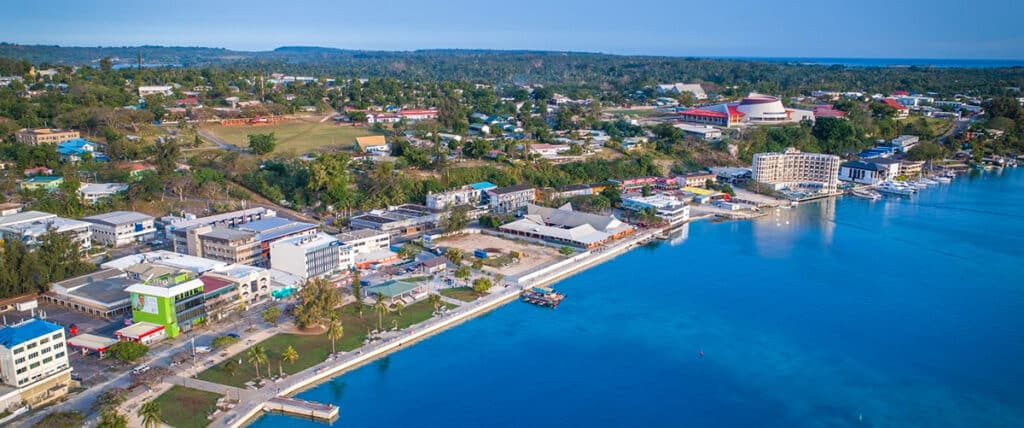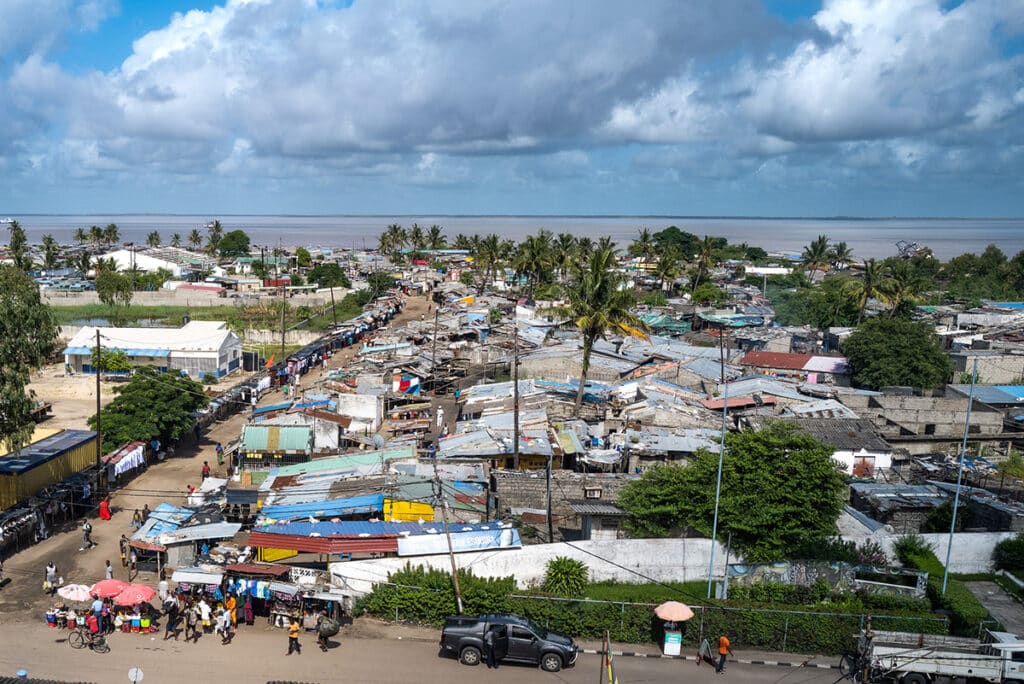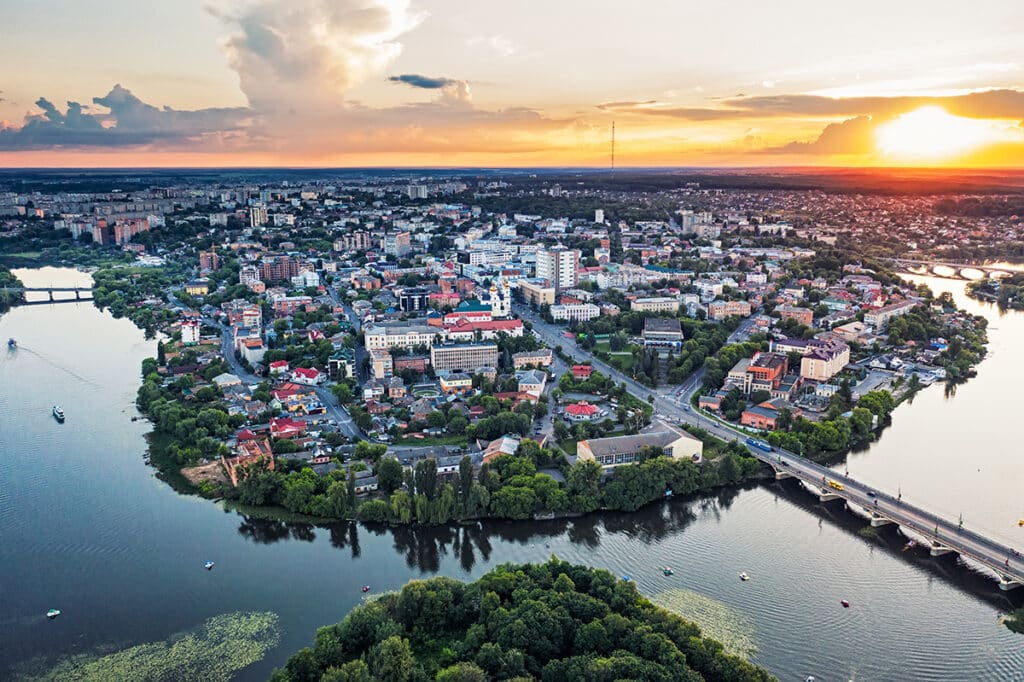Volcanoes are erupting in The Philippines, but on-fire Australia received some welcome rain. The Iran war cries have been called off and The Donald’s military powers are about to be hamstrung by the Senate. Meanwhile, his impeachment trial is starting, and we’re all on Twitter for a front-row seat.
What Could Go Right? Look to Cities for Climate Progress
Many are moving faster to hit climate targets than their national counterparts.
This is our weekly newsletter, What Could Go Right? Sign up here to receive it in your inbox every Thursday at 5am ET. You can read past issues here.
Look to Cities for Climate Progress
Much of the time when we talk about climate change, we talk in vast geographical terms: global, continental, national. We less frequently focus on cities, and even less so on localities.
And yet, cities are home to over half of the world’s people and produce three-quarters of global emissions. Even when federal policy is substandard or national progress sluggish, cities can chart their own paths to net-zero.
That is exactly the work of the Global Covenant of Mayors for Climate & Energy (GCoM), which was established the year after the Paris agreement was signed in 2015. It encompasses 13,700 cities and local governments, together representing 1.2 billion people. The initiative, supported by Bloomberg Philanthropies, helps cities commit to climate goals, act on them, and report transparently—and sometimes move faster and aim higher than their national governments.
This is the case, for instance, for a partner of GCoM, called C40, that brings together 97 of the world’s largest megacities. Three quarters of C40 cities are cutting their per capita emissions more quickly than their national counterparts. Across all C40 cities, on average, per capita emissions fell 7.5 percent between 2015 and 2024.
A recently released report from GCoM is stuffed with examples of what cities around the world are doing to cut emissions and mitigate climate-related damage. Here are a few:
Denmark is on the cusp of becoming the first country in the world where every municipality has a climate action plan.
Port Vila, the capital of Vanuatu, a nation in the South Pacific comprising a chain of 80 islands, is trying out biogas infrastructure, a method for processing organic waste that decreases methane emissions and produces renewable energy.

Qingdao, a port city in eastern China, renovated over 30 million square meters of residential and public buildings—the equivalent of about 5,600 football fields—which cut their energy expenditure by 40 percent.
In the historical town of Qab Elias in eastern Lebanon, half of all homes now have rooftop solar after a local solar panel company partnered up with the municipal government.
In Beira, a city in Mozambique that sits next to the Indian Ocean, authorities, with permission, relocated 30 families that were at high risk of being hit by cyclones.

Vancouver, Canada launched the Resilient Neighborhoods Program after the 2021 heat dome event, which killed hundreds. The program “distributes cooling kits and air filters to vulnerable residents and institutionalizes community-led heat preparedness.”
And in Vinnytsia, a city in west-central Ukraine that dates back to the Middle Ages, 60,000 residents are now protected from floods thanks to a project that revitalized the banks of the river that bisects the city.

“The untold story is that cities and local leaders really mobilized in a big way in Paris, but also in the decade since,” Asif Nawaz Shah, co-author of the report, told Grist.
On the one hand, cities and towns are constrained by their budgets, which can be slashed by decision-makers higher up the chain. On the other, they are run by people whom residents can hold accountable more effectively than national politicians, and are places where the contours of day-to-day life are much more easily moldable. With global emissions still rising, it’s critical to recognize our local environs as opportunities to embed ourselves in international climate progress.
Does your city or town have a climate action plan, or have you noticed local endeavors to combat climate change? I would love to hear about it! Leave a comment or email hello@theprogressnetwork.org.
What Could Go Right? S7 E18: What Makes Societies Thrive? with Johan Norberg

What made history’s golden ages thrive? Zachary and Emma speak with Johan Norberg, historian, documentary filmmaker, and author of Peak Human: What We Can Learn from the Rise and Fall of Golden Ages. Johan discusses what special societal qualities produced golden ages across history, as well as why these civilizations declined, what we can learn from their setbacks, and why the cyclical nature of history should bring optimism in today’s world. Johan also explores recent political developments in his native Sweden. | Listen now
By the Numbers
0: The number of hens now kept in cages in Sweden. It is the first country to go cage-free for egg-laying chickens without a legal ban in place; the change occurred solely through grassroots activism and public pressure.
50.4: The percent decline in the United Kingdom’s emissions since 1990.
100: The average number of minutes American men spent on housework daily in 2024, a record high. (Women still spend more time, at 140 minutes.)
$593B: The total Americans spent on charitable giving in 2024, up from $207 billion in 1985 (yes, those amounts are adjusted for inflation).
Quick Hits
📈 The world continues to grow richer. The World Bank has released its new income classifications for fiscal year 2026. In 1987, a quarter of countries were high-income; now, 40 percent are. Congratulations to Costa Rica, which has reached high-income status, and Cabo Verde and Samoa, which both moved up to the upper-middle-income category. Only Namibia moved downward.
📱 Since 2010, the number of mobile money accounts in the world has surged to over half a billion, most of them in Sub-Saharan Africa. These accounts create economic flexibility for their holders—think of what is possible with funds accessible through your phone versus only cash—as well as make foreign aid easier and cheaper, because they eliminate middlemen.
👶 Swiss regulators have approved the first malaria treatment specifically designed for babies and small children under 10 pounds. Rollout in African countries where malaria incidence is highest will begin as soon as possible.
⚡ Poland just generated more electricity from renewables than coal for the first time. Saudi Arabia is building “an entire industrial ecosystem” around electric vehicles. And the US has approved its first lab-grown seafood product (it’s salmon).
⛰️ Private companies and Nepalese authorities are working together to test-drive clearing Mount Everest and surrounding peaks of trash that has piled up there with drones. They don’t work perfectly in the harsh conditions yet, but they are Sherpa-approved.
🏊♀️ After a 1.4 billion euro cleanup project linked to the Olympics, Parisians are now allowed to swim in the Seine River. The last time Parisians could legally take a dip in the heart of their city was 100 years ago.
🦠 Scientists have discovered a gut bacteria that, in animal tests, can ferry up to three-quarters of PFAS “forever chemicals” out of the body in minutes. This family of bacteria is native to the human gut, and researchers hope to create probiotics that can boost this helpful microbe in us.
🧑⚖️ Wisconsin’s Supreme Court has struck down a near-total abortion ban on the books since 1849 that was automatically triggered by the rollback of Roe v. Wade. Abortion is currently allowed up until 20 weeks, and several other restrictions apply.
⚖️ Texas has clarified the definition of consent in its sexual assault laws in the last minutes of state lawmakers’ latest legislative session. Previously, someone who was too inebriated to give consent or was drugged by someone other than their assaulter was not considered an assault victim, but the new laws close this loophole.
🛜 In a 6-3 vote, the Supreme Court has decided to uphold a program, active since 1996, that provides “subsidized telephone and internet services to rural healthcare providers, schools and libraries, and low-income Americans.”
🏳️🌈 Same-sex civil partnerships have survived their final legal challenge in the Cayman Islands, after its governor legalized them in 2020. The decision might impact ongoing litigation in other British overseas territories like Turks and Caicos and the British Virgin Islands.
🧬 The genome of an ancient Egyptian was sequenced for the first time, revealing a genetic link from Egypt to cultures that existed in what is now Iraq, Iran, and Jordan.
👀 What we’re watching: This month, Cuban lawmakers are set to pass a bill that would “allow trans people to officially change their name at will, eliminating bureaucratic hurdles.” Cuba legalized same-sex marriage and adoption for gay couples in 2022. And the UK government has announced their intention to end nondisclosure agreements in cases of workplace harassment or discrimination.
💡 Editor’s pick: Is the left misremembering how the gains of the Civil Rights Movement were won?
TPN Member Originals
(Who are our Members? Get to know them.)
- Debating ‘progress’ with Samuel Matlack of The New Atlantis | AEI | James Pethokoukis
- Parents can now opt kids out of LGBTQ classroom material | Tangle | Isaac Saul
- Why Mamdani’s win matters | GZERO | Ian Bremmer
- How AI could make us dumber | NYT ($) | David Brooks
- Wokeness will always be with us | NYT ($) | John McWhorter
 What boys and dads really need | Good Inside | Richard V. Reeves
What boys and dads really need | Good Inside | Richard V. Reeves- The positive side of apocalyptic thinking | Flourishing Friday | Clay Routledge
- The Ciceronian secret to happiness | The Atlantic ($) | Arthur C. Brooks
- How Trump’s ‘big, beautiful bill’ will make china great again | NYT ($) | Thomas L. Friedman
- One big beautiful country | The Edgy Optimist | Zachary Karabell
- Greenback attack | Diane Francis | Diane Francis
- Feel like Congress doesn’t care what you want? You’re right. | WaPo ($) | Theodore R. Johnson
 The biggest news stories of the day | The Preamble | Sharon McMahon
The biggest news stories of the day | The Preamble | Sharon McMahon


